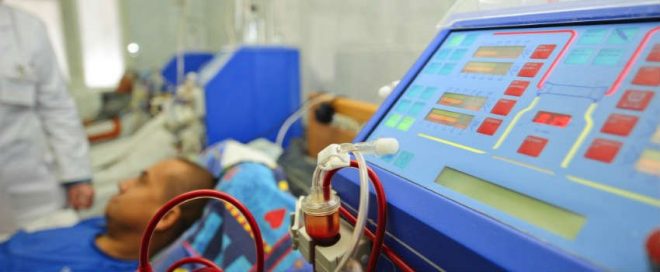
Mr S. had a past medical history of atrial fibrillation with a pacemaker fitted in 2013. Around 2021 Mr S began to suffer with large bruises and haematomas under the skin. Following investigations, he was diagnosed with acquired haemophilia A and was treated with factor VIII inhibitor bypassing activity (FEIBA) and high dose prednisolone in January 2022.
He experienced further episodes of bleeding and bruising, requiring further admissions and treatment in February, March and April 2022. He was discharged on 6 April 2022 following nose bleeding but was readmitted that evening with an elevated heart rate, relatively low blood pressure and being unable to stand.
Despite his history of acquired haemophilia and recent admissions for bleeding, he was diagnosed with atrial fibrillation and admitted to a cardiac ward. He was treated with bisoprolol (a beta blocker) and magnesium to regulate his heart rate. Throughout the night his heart rate remained high and his blood pressure continued to drop. He was given oral digoxin, IV fluids (after a delay) and underwent cardioversion which restored sinus rhythm of his heart. A DNR (Do Not Resuscitate) order to put into place early the following morning. Later that morning he became unresponsive and sadly died after discontinuation of CPR in accordance with the DNR order.
The Coroner recorded his cause of death to be:
- Hypovolemic shock
- Retroperitoneal haemorrhage
- Acquired haemophilia
His widow, Mrs S. instructed Stone Rowe Brewer to investigate and bring a clinical negligence claim on behalf of her late husband’s estate against Frimley Health NHS Foundation Trust. A report on breach of duty was obtained from a cardiologist and a causation report from a consultant in anaesthesia and intensive care. In both experts’ opinion, the Trust had failed to consider a likely diagnosis on admission of occult internal bleeding – despite his recent admissions for bleeding. If this had been correctly diagnosed and he had been admitted to ICU and treated with blood products and other medications, on the balance of probabilities he would not have died when he did.
Further evidence on life expectancy was then obtained which confirmed that on the balance of probabilities he would have lived a further 8.5 years but for the negligent treatment.
A Letter of Claim was sent to the Trust detailing these allegations and in their Letter of Response the Trust admitted liability. Compensation was sought for Mr S’s pain and suffering, funeral expenses, bereavement award for his widow and loss of income dependency for the 8.5 years he would he lived. The claim was settled out of court and without the need to issue court proceedings.
